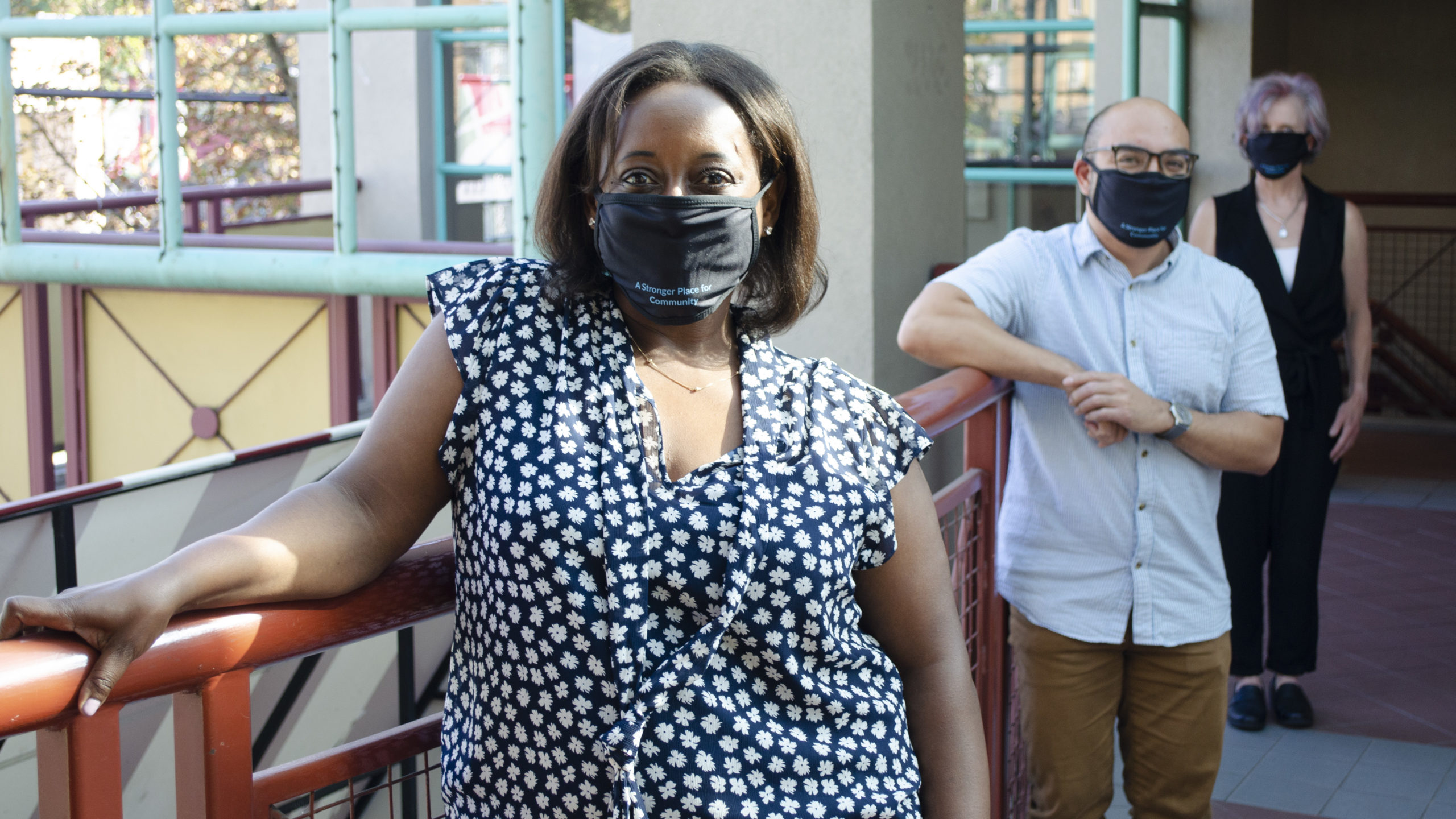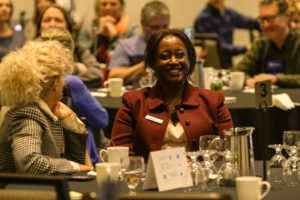#HumansOfCoopHousing: Michelle is pursuing a Masters in co-op management to grow as a leader
Published September 23, 2020

Michelle Cooper-Iversen, as chief operating officer of the Co-operative Housing Federation of BC, has a lot on her desk this year. Not only is she overseeing work to keep CHF BC and its subsidiaries (including COHO Management Services Society and BC’s Community Land Trust) strong and active during a pandemic, she’s also pursuing her Masters of Management, Co-operatives and Credit Unions, from Saint Mary’s University.
I didn’t know a lot about co-operatives when I applied for this job, but I wanted to work for a non profit.
People talk about the history of co-ops beginning with the Rochdale Pioneers in the 1800s but I like to think that is only part of the story because working co-operatively must have been a means of economic survival of communities for a very long time. It’s embedded in people quite naturally. In many communities, if you think about how they operate, there is that concept of sharing food and resources. It might not be quite as structured as the Seven Co-operative Principles.
I’m learning more about the writings of W.E.B. Du Bois who suggested that African Americans form co-operatives to serve their economic needs to gain individual wealth because racism was working against them.
My grandmother, for example, she had a “sou-sou”, that was what it was called, she’s French Caribbean and she got ten families to each put in a hundred dollars a week for ten weeks. It meant that in any one week, one of them got a thousand dollars, and that was how she was able to pay for Christmas. So I always think of these things we do that are co-operative in nature if not formal.

The programme has been really great, because I take everything back to work. I talk Thom [Armstrong]’s ear off. Our most recent conversation being innovation: how innovative are we?
Our board is very innovative. We’ve been leading the way well before the pandemic hit. For the longest time we were just CHF BC and COHO, but then enter the Land Trust which is a social purpose real estate enterprise, and then you’re dealing with a complex governance picture. So the board of CHF BC spent a lot of time looking at their structure.
It also led us to look at technology and how do we meet and communicate effectively, which in turn led us to [Microsoft] Teams. And this all happened in 2018, and has proven critical for how both our board and staff have handled COVID-19.
COHO as well, has been innovative, they invested in a new cloud-based property management software well ahead of Covid. If we hadn’t done that, we wouldn’t have been able to be so nimble this year.
There are 12 of us in this year’s Saint Mary’s cohort. I like that it’s a mixture of people from food co-ops, credit unions and worker co-ops. It really gives a wide perspective. In our globalization course we studied the 2008 financial crisis, and I didn’t realize that co-ops had proven so resilient and survived through that period. It’ll be interesting to see how co-ops do through Covid-19.
I think it’s an incredible programme. It certainly has increased my knowledge of the co-op sector. I’m now on a panel of alumni, and we’re going to talk about the programme and how we’ve managed studies with work. I have to say it was a real challenge, truly my most challenging three months, helping CHF BC and its affiliates adapt to the pandemic, while studying and doing assignments. But I’ve done really well, and I’m really proud of that!
I’m also on the board of the BC Co-operative Association. I looked at our management team and the strengths that were there, and I felt that I could help us stay fully engaged with the co-op sector, even while we’re extremely busy on growth and development.
Throughout 2020, our Humans of Co-op Housing series will feature individuals who are making their co-ops a better place or speaking up for the importance of co-op housing. Let us know at info@chfcanada.coop who you’d like to see featured next.
Don't miss out on the latest co-op news, success stories, and helpful resources for your co-op. Sign up here to receive our eNews every two weeks straight to your inbox!
